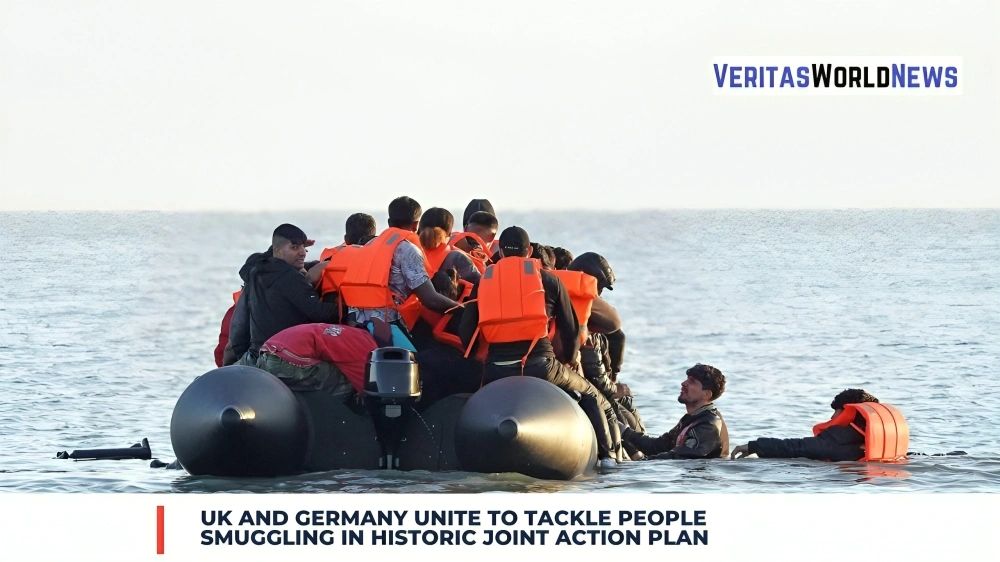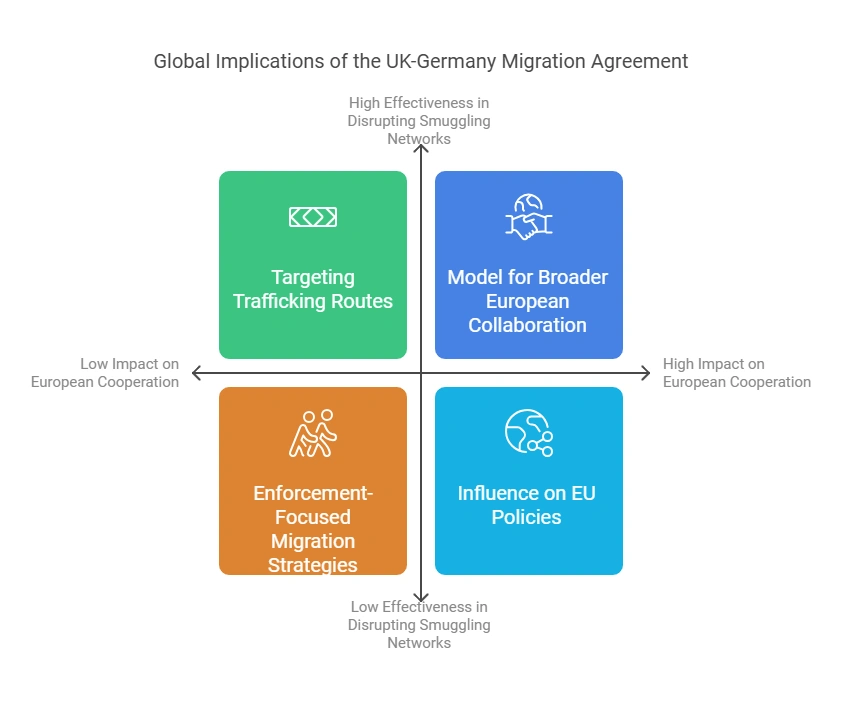
London, UK— The United Kingdom and Germany have signed a historic joint action plan aimed at combating people-smuggling operations responsible for transporting migrants across the English Channel in small boats. The agreement represents a significant step in addressing the growing migrant crisis that has strained European governments and heightened public concern over border security.
The plan includes intelligence sharing, enhanced law enforcement collaboration, and legal reforms in Germany to make facilitating people-smuggling a specific offense.
Key Elements of the Joint Action Plan
1. Intelligence Sharing
- Coordinated Efforts: The UK and Germany will establish a shared database to track and dismantle smuggling networks operating across Europe.
- Real-Time Alerts: Intelligence agencies from both nations will collaborate to intercept planned crossings and apprehend smugglers.
2. Law Enforcement Collaboration
- Cross-Border Operations: Joint task forces will be formed to conduct coordinated raids on smuggling operations.
- Training Programs: German and British law enforcement will participate in joint training to enhance their capacity to combat trafficking networks.
3. Legal Reforms in Germany
- Criminalization: Germany has pledged to introduce legislation making it a specific offense to facilitate people-smuggling, aligning its laws with the UK’s stricter anti-smuggling measures.
The Migrant Crisis in Numbers
- English Channel Crossings: Over 45,000 migrants have attempted to cross the Channel in small boats this year, with many relying on dangerous smuggling routes.
- Fatalities: Hundreds have died in the perilous journey, underscoring the human cost of the crisis.
- Trafficking Networks: Smuggling operations generate billions annually, exploiting vulnerable individuals seeking refuge or economic opportunities.
Reactions to the Agreement
Supporters Applaud the Initiative
- UK Government: Prime Minister Rishi Sunak hailed the agreement as a breakthrough in addressing illegal migration.
- Sunak: “This historic partnership with Germany strengthens our resolve to dismantle criminal networks exploiting human lives.”
- German Officials: German Chancellor Olaf Scholz emphasized the importance of international cooperation to tackle shared challenges.
- Scholz: “Smugglers do not respect borders. Neither should our efforts to stop them.”
Critics Voice Concerns
- Human Rights Advocates: Warn that the focus on enforcement could overshadow the need for humane migration policies.
- Amnesty International: “While tackling smugglers is essential, addressing the root causes of migration must remain a priority.”
- Opposition Politicians: Question the agreement’s effectiveness in reducing crossings without broader asylum reforms.
Public Opinion: What’s True and Untrue?
- True:
- Smuggling networks are a major factor driving illegal Channel crossings.
- Collaborative efforts between the UK and Germany could strengthen enforcement against traffickers.
- Untrue:
- Claims that this agreement alone will end illegal migration ignore the complexity of the crisis, including war, poverty, and lack of legal pathways for asylum seekers.
- Assertions that Germany previously lacked laws against people-smuggling overlook existing legislation, though this agreement introduces stricter provisions.
Global Implications

1. Strengthened European Cooperation
The UK-Germany agreement could serve as a model for broader European collaboration in addressing migration challenges.
2. Impact on Smuggling Networks
By targeting trafficking routes and increasing penalties, the agreement aims to disrupt the operations of organized crime groups profiting from illegal migration.
3. Policy Shifts
The partnership highlights a growing trend toward enforcement-focused migration strategies, which may influence policies across the EU.
What’s Next?
1. Legislative Action
Germany is expected to introduce legal reforms in the coming months, with debates anticipated in the Bundestag.
2. Implementation of Joint Measures
Both nations will work to operationalize intelligence-sharing systems and cross-border law enforcement collaborations.
3. Continued Focus on Migration Policies
The agreement underscores the need for comprehensive migration strategies that balance enforcement with humanitarian considerations.
Conclusion: A Landmark Agreement with High Stakes
The joint action plan between the UK and Germany marks a pivotal moment in the fight against people-smuggling, reflecting a shared commitment to safeguarding lives and upholding border security. However, as Veritas World News observes, “Effective solutions to the migrant crisis will require not only enforcement but addressing the systemic issues driving migration.”
#MigrationCrisis #PeopleSmuggling #UKGermanyPartnership #BorderSecurity #VeritasWorldNews
